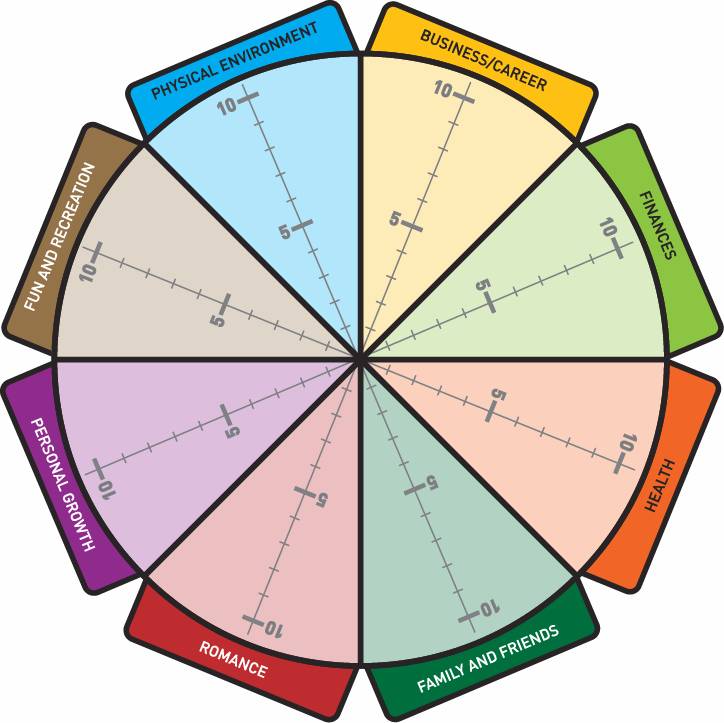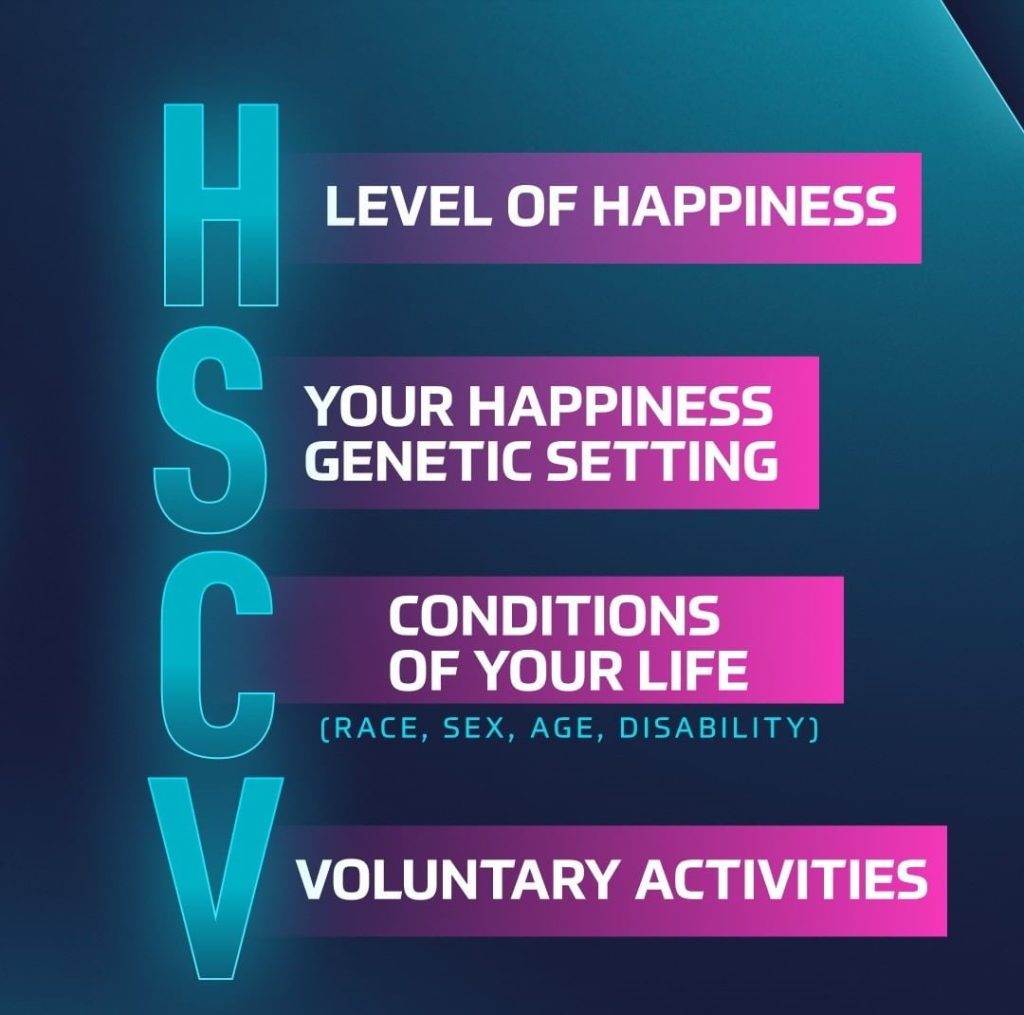What is the happiness formula?
I see myself as a pretty laid-back person, the type of person for whom the glass is half full.
When I find myself in an unfortunate situation, I always think of ways it could have been worse and I feel a little better instantly. Did I spill coffee on myself? At least it wasn’t hot enough to burn me, I can get the stain out later. Did I forget to pay for the cable subscription this month? No worries, I have so many good books to choose from, I’m actually better off reading than watching some entertainment shows.
A few years ago, I did the Wheel of Life with a couple of friends as an exercise of personal introspection and discovery.

The Wheel of Life is a template used by development coaches and anyone looking to assess one’s life and level of satisfaction and happiness.
I was surprised to find out I had the highest scores among my friends. The dimensions where there was room for improvement were Fun and Recreation, Physical Environment and Finances, where instead of 10 I had chosen 8. So nothing dramatic: who doesn’t want to have more fun with their friends, upgrade their home and have more money to spend? I started thinking: was I really happy with my life or just content with what I had? Am I not ambitious?
Should I set higher goals for myself? Is achieving them going to make me happier? These are a few questions I still think about now and then.
Social psychologist Jonathan Haidt believes happiness is achievable and it even has its own written formula.
Author of The Happiness Hypothesis, Jonathan Haidt is the Thomas Cooley Professor of Ethical Leadership at New York University’s Stern School of Business and has a PhD in social psychology from the University of Pennsylvania.
In The Happiness Hypothesis (a book I believe belongs in every home), he goes through 500 years of ancient wisdom and classical thought on happiness and presents arguments to support or break ideas that are living or have lived in our collective consciousness, at one point in time.
Is happiness about having more? More money, more influence, more power. The fault in having more is that nothing will be enough and it will leave you feeling empty because you’re trying to fill your cup with the wrong valuables (I first heard the term filling one’s cup on Oprah, and I loved it. Who else got their first lessons in self-awareness from Oprah, raise your hands!) It’s like trying to plug a hole in the sink with a sieve – pointless.
Is happiness about being more? It could be if you replace more beautiful with more empathetic; swap a stronger physique with being strong for your loved ones in need. Of course, you can have both; striving to get only the first part will leave you unsatisfied and sad.
Is total detachment from people and every riches the world has to offer a good solution? Not everyone can be a monk (or a Jedi, whichever you prefer).
We can also talk about how some people are not happy because they expect the world to conform to their desires. Thinking that the world owes them something or that someone else is always to blame for whatever happens in their lives is a source of pain and unhappiness. Once they make the switch from I want control to All I can control is myself, the rain stops and the sun breaks free from behind the clouds.
What Jonathan Haidt found in his research is that happiness is strongly determined by human bonds and meaning.
Here is the formula for happiness:

H is the level of happiness, S is your happiness genetic setting, C stands for the conditions of your life (sex, age, race, disability etc) and V is for voluntary activities.
Jonathan found that our level of happiness is determined by our genes, the conditions of our life and the voluntary activities we choose to do.
We cannot change our race, age or undo our disability; we can only adapt to them.
However, some conditions are sources of stress and we should do everything in our power to change them.
They are:
Noise: variable and intermittent noise interferes with concentration and increases stress.
Commuting: commuters driving in heavy traffic arrive at work with higher levels of stress.
Lack of control: changing an institution’s environment to increase the sense of control among its workers, students, patients or other users is one of the most effective possible ways to increase their sense of engagement, energy and happiness.
Shame: feeling shame about our body is a powerful source of stress. When the orthodontic treatment is successful, not only it results in a beautiful big smile but it also leads to the feeling that a weight has been lifted off your shoulders. It’s freeing to smile and not think about your crooked teeth.
Relationships: good relationships make people happy. Adapting to bad relationships is not possible. That’s why people divorce, become estranged from their origin family and leave the company because of a bad manager.
So there are conditions we cannot change and conditions we can change. Imagine having a thermostat in your brain. Some brains are set at 40 degrees (happy people) while other brains are set at 10 degrees (depression-prone people).
When we improve the environmental conditions, we influence our brain setting (which is more of a range than a set point) and our level of happiness will follow.
We’ve now arrived at V for voluntary activities.
Jonathan found that happiness is about doing activities which leverage your strengths and tighten your bonds with your loved ones (friends and family).
Find activities that make you lose track of time and fully engage your attention: painting, dancing, and having a deep and meaningful conversation with a friend or mentor.
Being in the flow is one of the most satisfying and rewarding states a person can feel. If people fill your cup, find out how you can contribute to your community.

